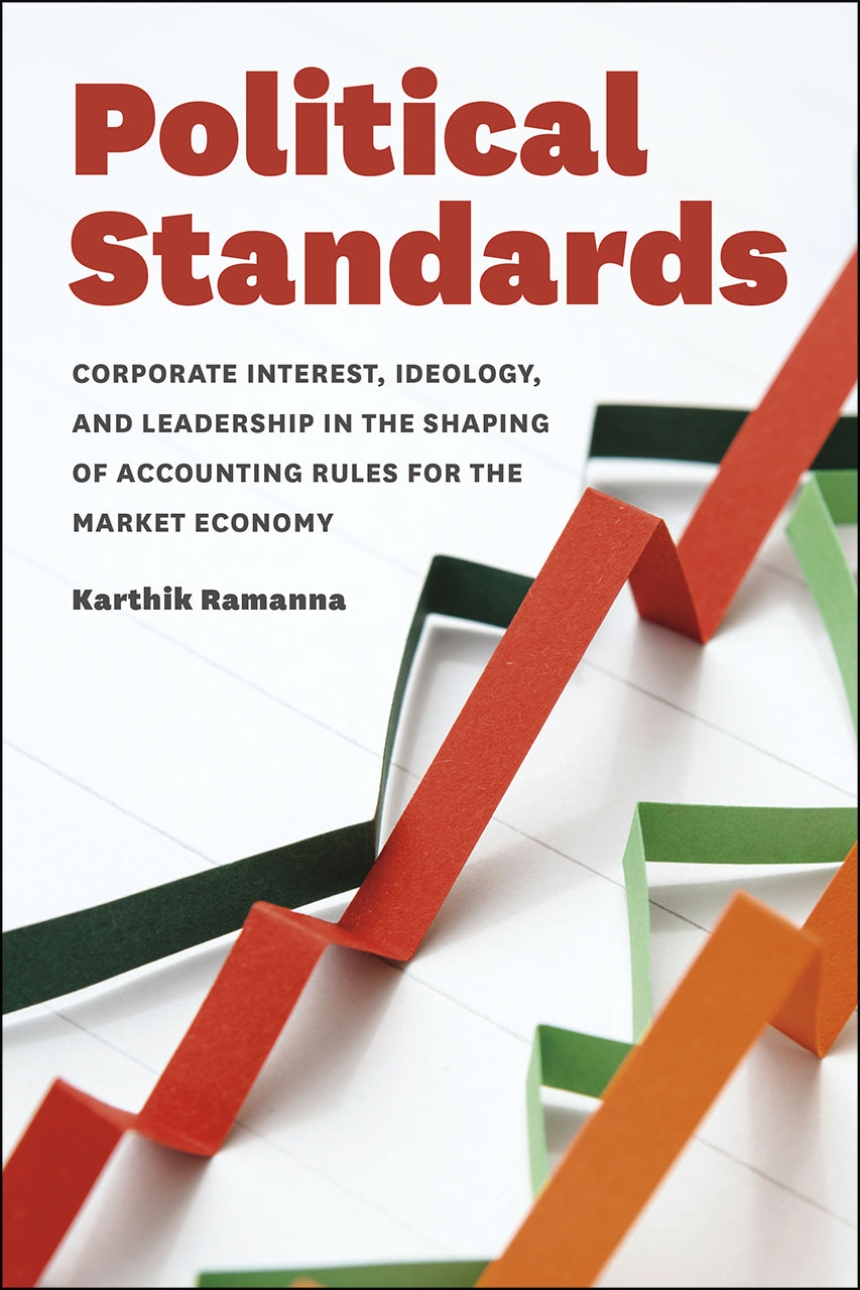Political Standards
Corporate Interest, Ideology, and Leadership in the Shaping of Accounting Rules for the Market Economy
9780226528090
9780226210742
9780226210889
Political Standards
Corporate Interest, Ideology, and Leadership in the Shaping of Accounting Rules for the Market Economy
Prudent, verifiable, and timely corporate accounting is a bedrock of our modern capitalist system. In recent years, however, the rules that govern corporate accounting have been subtly changed in ways that compromise these core principles, to the detriment of the economy at large. These changes have been driven by the private agendas of certain corporate special interests, aided selectively—and sometimes unwittingly—by arguments from business academia
With Political Standards, Karthik Ramanna develops the notion of “thin political markets” to describe a key problem facing technical rule-making in corporate accounting and beyond. When standard-setting boards attempt to regulate the accounting practices of corporations, they must draw on a small pool of qualified experts—but those experts almost always have strong commercial interests in the outcome. Meanwhile, standard setting rarely enjoys much attention from the general public. This absence of accountability, Ramanna argues, allows corporate managers to game the system. In the profit-maximization framework of modern capitalism, the only practicable solution is to reframe managerial norms when participating in thin political markets. Political Standards will be an essential resource for understanding how the rules of the game are set, whom they inevitably favor, and how the process can be changed for a better capitalism.
With Political Standards, Karthik Ramanna develops the notion of “thin political markets” to describe a key problem facing technical rule-making in corporate accounting and beyond. When standard-setting boards attempt to regulate the accounting practices of corporations, they must draw on a small pool of qualified experts—but those experts almost always have strong commercial interests in the outcome. Meanwhile, standard setting rarely enjoys much attention from the general public. This absence of accountability, Ramanna argues, allows corporate managers to game the system. In the profit-maximization framework of modern capitalism, the only practicable solution is to reframe managerial norms when participating in thin political markets. Political Standards will be an essential resource for understanding how the rules of the game are set, whom they inevitably favor, and how the process can be changed for a better capitalism.
296 pages | 5 halftones, 2 line drawings, 10 tables | 6 x 9 | © 2015
Economics and Business: Business--Business Economics and Management Studies, Economics--General Theory and Principles, Economics--Government Finance
Reviews
Table of Contents
List of Abbreviations
List of Tables
List of Figures
Preface
1. Introduction
2. The Benchmark: What Should GAAP Look Like?
3. Goodwill Hunting: The Political Economy of Accountability for Mergers and Acquisitions
4. The Shrinking Big N: Rule-Making Incentives of the Tightening Oligopoly in Auditing
5. Why Fair Value Is the Rule: The Changing Nature of Standard Setters
6. Local Interests in Global Games: The Cases of China and India
7. My Own Private Company Council: How a New Accounting Rule-Maker Is Born
8. Political Standards: Lobbying in Thin Political Markets
9. Managers and Market Capitalism
Afterword
Bibliographic Note
Acknowledgments
Notes
Bibliography
Index
List of Tables
List of Figures
Preface
1. Introduction
2. The Benchmark: What Should GAAP Look Like?
3. Goodwill Hunting: The Political Economy of Accountability for Mergers and Acquisitions
4. The Shrinking Big N: Rule-Making Incentives of the Tightening Oligopoly in Auditing
5. Why Fair Value Is the Rule: The Changing Nature of Standard Setters
6. Local Interests in Global Games: The Cases of China and India
7. My Own Private Company Council: How a New Accounting Rule-Maker Is Born
8. Political Standards: Lobbying in Thin Political Markets
9. Managers and Market Capitalism
Afterword
Bibliographic Note
Acknowledgments
Notes
Bibliography
Index
